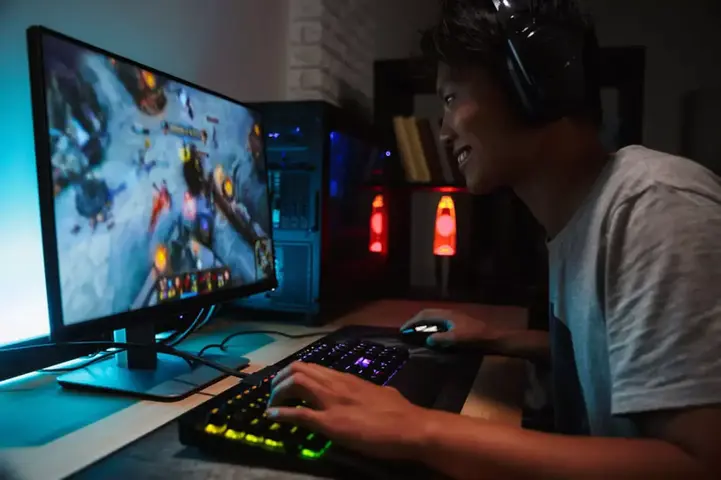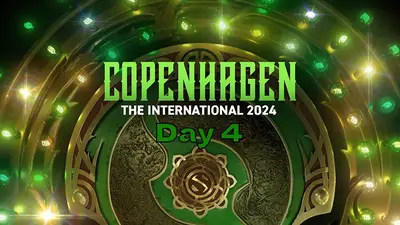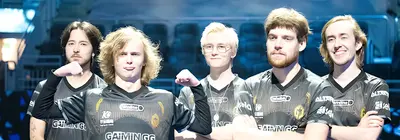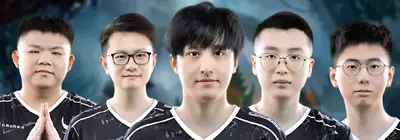
Dota 2 Replay Analysis Learning from Mistakes and Successes
SmashukDota 2 is a multi-layered and complex game where every decision and move can determine the outcome of a match. One of the most effective ways to improve your gameplay is by analyzing replays. This involves watching a recorded game to identify mistakes, understand tactics, and study both your own and your opponents' successes. In this article, we will discuss why replay analysis is crucial for a player's development and how to conduct it most effectively.
Why is Replay Analysis Important?
Watching replays allows players to view the game from a different perspective. During a match, players are often immersed in quick decision-making and cannot objectively evaluate their actions. A replay provides the opportunity to do this in a calm atmosphere, without the pressure of time and opponents.
Analyzing your own replays helps to identify mistakes made during the game. Poor positioning in fights, wrong item choices, or untimely use of abilities can all be spotted by reviewing your matches. Identifying these mistakes and working on them promotes improvement in your gameplay.
Watching replays of other players, especially professionals, can provide invaluable lessons. It allows you to see how top players execute their actions, what techniques and strategies they use, how they coordinate with their team, and how they react to various in-game situations.
How to Effectively Analyze Replays?
The process of replay analysis can be broken down into several key steps. First, define the goal of your review to understand what to focus on. This could be improving a specific aspect of your game, such as hero micro-control, macro decisions, or team interactions. Having a clear goal makes the analysis more structured and effective.
Pay attention to the overall strategy of your team and the opponents. Analyze how you and your team responded to the enemy's movements, whether your actions were coordinated, and if your decisions regarding map objectives (towers, Roshan, shrines) were correct.
Next, focus on your individual actions in the game. Review your decisions in fights: positioning, use of abilities, and target selection. Evaluate your last-hitting, ability and item timings, and your ability to avoid danger. This will help identify specific moments that need improvement.
Identify moments where you or your team failed. Analyze what went wrong. Understanding your own mistakes is the first step to correcting them. It is equally important to study successful moments in the game, noting what you did right, which strategies and decisions were effective.
Examples of Replay Analysis
Consider a moment in the lane where you took significant damage or were killed. Review this moment, focusing on your positioning, target selection, and ability usage. Could you have avoided the opponent's attack, positioned yourself better, or used different abilities? Analyzing such moments will help you better understand how to act in the lane.
Review an important team fight that your team either won or lost. Evaluate how the fight started, what were the key moments that influenced the outcome. This will help understand how to approach team fights better in the future.

Using Tools for Analysis
Various tools can be helpful in replay analysis. Dota 2 has a built-in replay viewing system that allows you to rewind the game, slow it down or speed it up, and change cameras for better viewing. Additionally, third-party services like Dotabuff or OpenDota provide extra statistical data about the game. They allow you to see more detailed metrics, such as gold per minute (GPM), experience per minute (XPM), damage dealt, and many others.
Avoiding Common Mistakes During Replay Analysis
During replay analysis, it is important to avoid some common mistakes to make this process as useful as possible. Insufficient attention to detail, ignoring the macro aspects of the game, and not focusing enough on the opponents can significantly impact the outcome. Carefully analyze every moment, including your actions in the lane, map movements, and reactions to opponents' actions.
Don't just stop at your own mistakes – analyze your team's and opponents' actions as well. It is important to understand how your actions impact the overall game strategy. For example, if you consistently prioritize farming over helping your team in critical moments, it can lead to losses in important fights. Pay attention to timings: when it is best to attack or defend objectives on the map, when to rotate or gank.
When analyzing replays, do not focus exclusively on negative aspects. Pay attention to successful actions and moments when you or your team acted correctly. This will help you understand which decisions were effective and should be repeated in the future.
Avoid excessive self-criticism. The desire to improve is important, but don't forget that mistakes are an integral part of learning. It is important to draw conclusions and move on, rather than dwelling on negativity. A positive approach helps better assimilate new skills and strategies.

Creating an Improvement Plan
Based on replay analysis, it is worth creating a concrete improvement plan. Identify key points that need work and develop strategies for improving them. For example, if you have problems with last-hitting, spend more time practicing in the lobby. Practicing on special maps designed for last-hitting will help you increase accuracy and consistency in this aspect of the game. If you poorly coordinate with your team, work on communication. Use voice chat or clear commands in text chat to improve interaction. Regular discussions of strategy and analysis of team actions after games can significantly improve your coordination.
Include specific goals with measurable success indicators in your plan. For example, set a goal to increase the number of successful last-hits by a certain percentage or reduce the number of deaths in team fights. Regularly review your progress and adjust the plan based on achievements and newly identified problems.

Conclusion
Replay analysis is a powerful tool for improving Dota 2 gameplay. It allows you to identify mistakes, learn from successes, understand strategies and tactics of the game. A regular and structured approach to analysis will help any player, regardless of their level, to elevate their skills to a new level. By analyzing replays, you will be able to understand the game better, make more informed decisions, and achieve better results in Dota 2.
Additionally, replay analysis helps develop important gaming qualities such as critical thinking, attentiveness, and the ability to self-improve. You will learn not only to correct your mistakes but also to anticipate possible actions of your opponents, better adapt to different situations in the game, and improve team play. These skills are valuable not only in the context of the game but also can be useful in other areas of life where quick decision-making and effective teamwork are required.
Regular replay analysis also allows you to monitor progress, evaluating how effectively you are addressing previously identified problems. This provides motivation to keep improving and not stop at what has been achieved.
Remember, Dota 2 is a game that is constantly evolving. New patches and meta changes can affect game strategies and player requirements. Replay analysis helps to stay relevant, adapting your playstyle to new conditions and effectively using new opportunities.
READ ALSO: Analyzing Professional Dota 2 Matches
Article info
Guides
Upcoming Top Matches















Comments